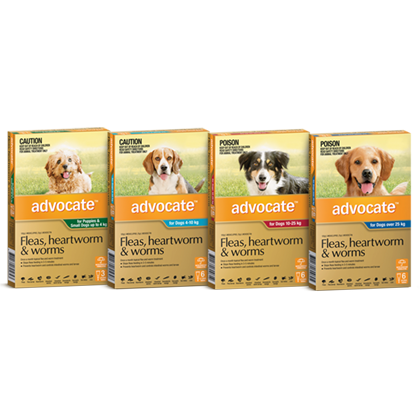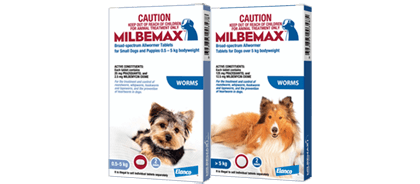As a responsible pet owner, knowing what to expect before, during, and after deworming your dog can make the process more manageable and less stressful.
Dogs, with their inherent curiosity, experience much of the world with their noses and mouths. Regrettably, this also exposes them to a range of intestinal worms. If you've noticed signs of worms in your dog, you can use a deworming treatment to efficiently tackle the issue. This guide will help you understand what to expect throughout the whole process - from choosing the appropriate treatment to observing your dog's behaviour post-administration.
Various options are at your disposal for treating worms in your dog, with tablets and spot-on treatments being the most common. Once you've identified a suitable product, administering it is typically straightforward. However, understanding the journey doesn't stop here; it's equally important to know what happens in the initial hours and days following the treatment.
Understanding worming treatments and how long they take to work
Choosing the right deworming treatment is a crucial part of keeping your dog healthy. Let's look at the common deworming treatments and how long they typically take to start showing effects:
- Tablets or chewables: Oral treatments like tablets or chewables are a common and convenient way to deworm your dog. They usually start working within 24-48 hours. They kill off the worms within the dog's intestines, which are then passed out through your dog’s faeces.
- Spot-on treatments: Spot-on treatments, applied to the back of your dog's neck (and back in larger dogs), can also kill worms. They are absorbed through the skin and work systemically to treat and control worm infections. These treatments can start working within 24-48 hours, just like oral treatments.
Each of these treatments can be effective in treating and controlling worm infestations in your dog.
Handling vomiting after a deworming treatment
Occasionally, dogs may vomit shortly after receiving a deworming treatment. This is an important aspect to consider as it could potentially affect the effectiveness of the treatment.
Here's what you should know:
Why vomiting occurs: The active ingredients in deworming medications can sometimes upset your dog's stomach, leading to vomiting. Moreover, some dogs may simply not react well to the taste or texture of certain treatments, which can also induce vomiting. Rarely, dogs may also vomit after spot-on treatment.
Impact on treatment: If your dog vomits immediately after receiving the deworming treatment, it's possible that they have not fully absorbed an oral medication (tablet or chewable). This could reduce the effectiveness of the treatment and may not fully eliminate the worm infestation. Vomiting after a spot-on treatment does not affect the effectiveness of treatment.
What to do: If your dog vomits shortly after receiving the oral treatment - typically within an hour - you should contact your vet immediately. They can provide advice on whether a replacement dose is needed and when to administer it. If your dog continues to vomit or shows other signs of illness, a vet visit might be necessary to rule out any other underlying issues. If your dog vomits after application of a spot-on wormer, monitor them closely and contact your vet if you have any concerns.
Remember, it's always better to err on the side of caution when it comes to your pet's health. Reach out to your vet or our Animal Health Consultants on 1800 995 709 for professional advice whenever you're in doubt.
Other potential health risks associated with deworming treatments
Apart from vomiting, deworming treatments can occasionally cause other side effects or health risks. It's essential to be aware of these possibilities to provide your pet with the best care possible. Here are some potential health risks associated with deworming treatments:
- Allergic Reactions: Some dogs may have an allergic reaction to a particular deworming medication. Signs of an allergic reaction include hives, difficulty breathing, swelling of the face, lips, tongue, or throat. If you notice any of these signs, seek immediate veterinary care.
- Medication Overdose: An overdose can occur if your dog accidentally consumes too much of a deworming treatment, or if they ingest another dog's medication. Signs of an overdose can include vomiting, loss of appetite, diarrhea, drooling, and weakness. Severe cases can lead to seizures, collapse, or even coma.
- Interaction with Other Medications: Deworming treatments can sometimes interact with other medications your dog may be taking, which could either reduce the effectiveness of the treatment or cause adverse reactions. Always inform your vet of any other medications your dog is currently taking.
- Age and Health Status: Puppies, senior dogs, or dogs with existing health conditions may react differently to deworming treatments. They may be more susceptible to side effects and may require a different dosage or type of medication.
When using spot-ons, there may occasionally also be transient changes at the application site, such as hair loss and greasy fur. These usually disappear quickly.
However, it is also important to remember that these risks are generally rare, and the benefits of deworming your dog far outweigh the potential risks. Remember, if you ever have concerns or questions, contact your vet or our Animal Health Consultants on 1800 995 709 for professional advice.
Prevent worms in the long term
Deworming your dog once is not enough to fully protect them from worms. Once the treatment wears off, your dog may be re-infected. In addition, many “knock down” wormers only kill the adult worms that are in the gut at the time of treatment, leaving immature forms that can grow into adults and cause disease.
AdvocateTM is a monthly spot-on and a great choice for deworming as it kills immature and adult forms of most major gastrointestinal worms and, when used regularly as per label instructions, keeps killing worms between treatments, preventing reinfection. Advocate also kills fleas, lice and mites and prevents deadly heartworm. Even if you are already preventing heartworm, fleas, ticks and mites using other products, you will still need treat your dog regularly for intestinal worms. MilbemaxTM is a small easy to use tablet and protects against all major gut worms, preventing any worming gap other products may leave. When given monthly, Milbemax also prevents heartworm.
Remember that regular treatment is the best defence against worms and other parasites. Regular deworming throughout your dog’s life will help keep your dog healthy and happy.
Always read and follow label directions.

Advocate for dogs
Advocate provides fast relief from fleas, prevents deadly heartworm and helps protect your dog and your family from most intestinal worms

Milbemax™ worming tablets for dogs
Milbemax™ tablets for dogs protect against all the most common worms your dog will come into contact with, including tapeworm.




